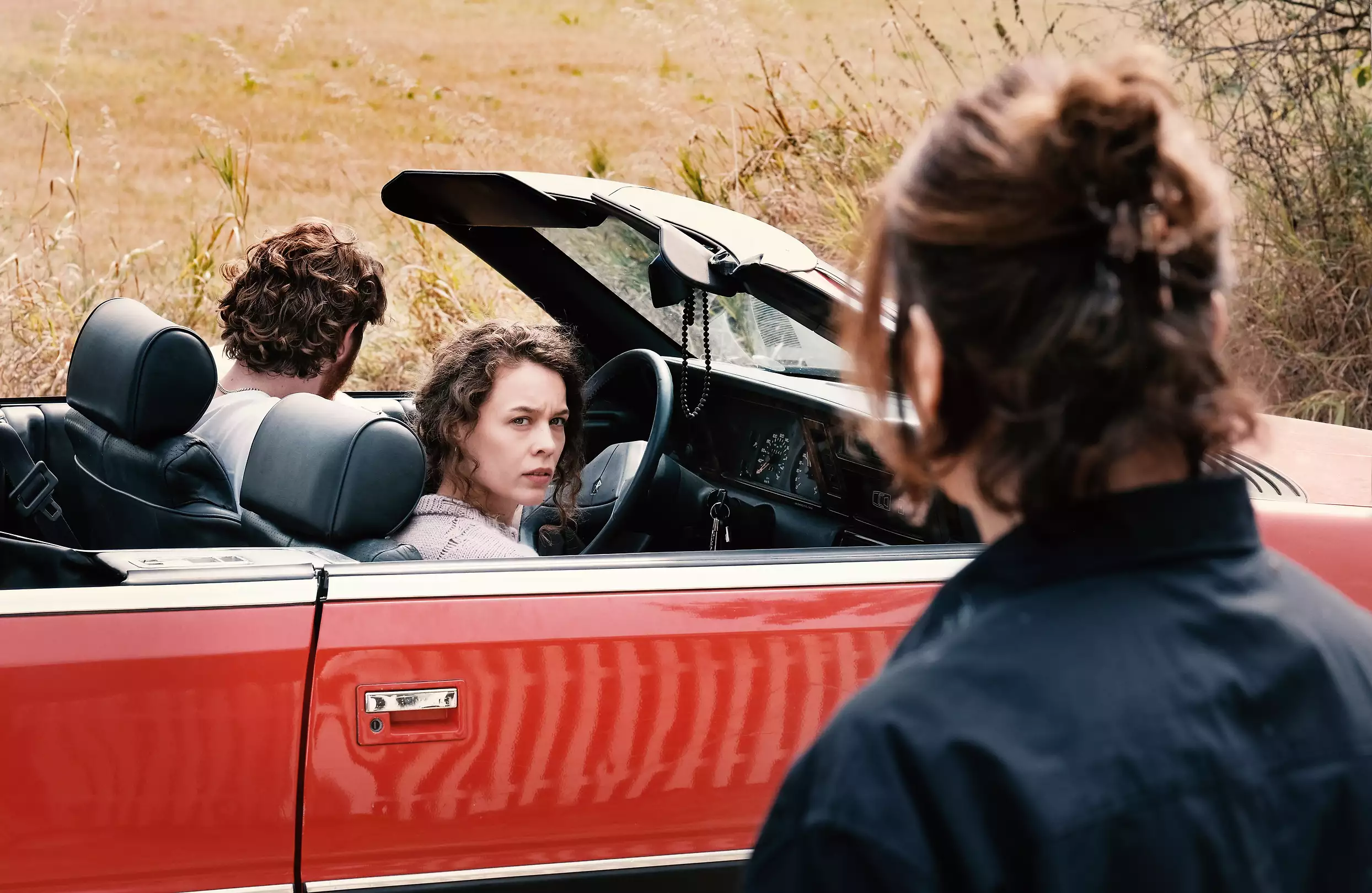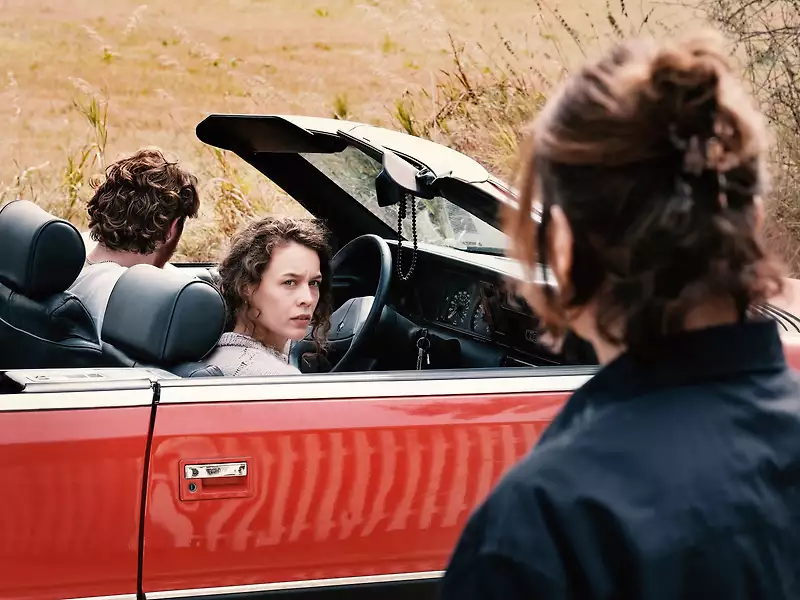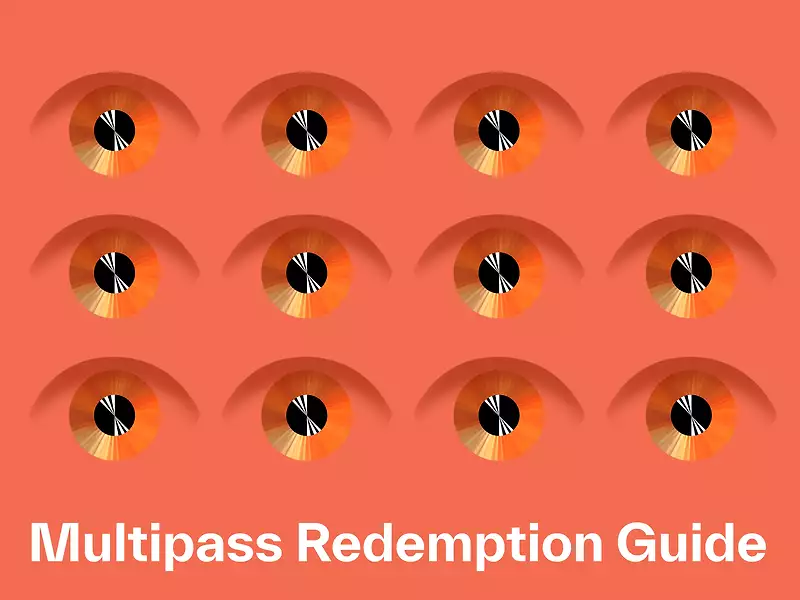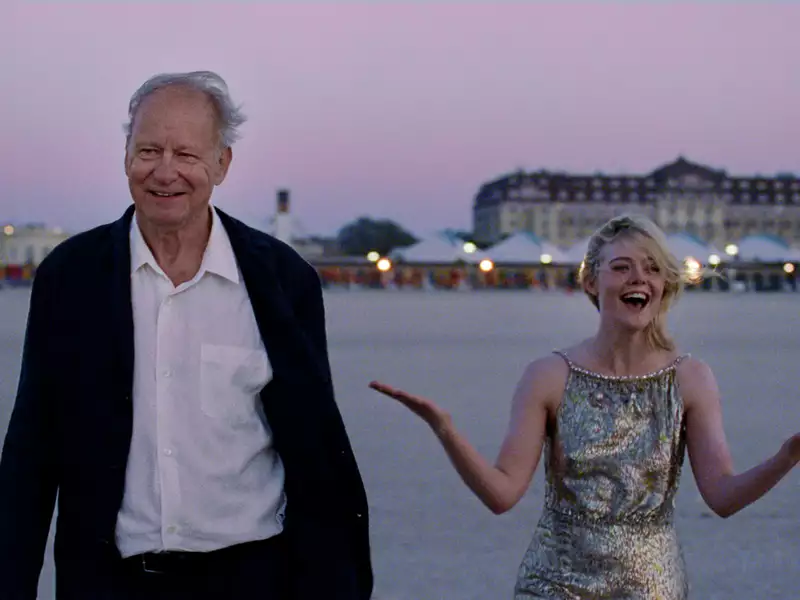Five Visionary Directors Defining NZIFF 2025
Thomas Giblin

Big name actors get plenty of time in the limelight, but who's making waves behind the camera? These internationally-acclaimed directors are ones to watch, and they all have films at this year's festival.
It Was Just an Accident 2025
Yek tasadef sadeh
Directed by Jafar Panahi
Legendary Iranian director Jafar Panahi, is just the fourth director ever to snag the top prizes at the Venice, Berlin, and Cannes film festivals. He took home the Golden Lion in 2000 for The Circle, and the Golden Bear in 2015 for Tehran Taxi, both of which have screened at the Whānau Mārama: New Zealand International Film Festival. So it’s a fitting, full circle tribute to “one of the greatest artists of contemporary cinema and one of its most empathetic and committed humanists,” that this year's opening night film is the rousing 2025 Palme d’Or winning It Was Just an Accident.
A bigger accomplishment than any film festival top prize, is that despite travel bans, house arrests, imprisonment, and a 20-year ban from filmmaking, Panahi has never shied from his courageous commitment to “crafting self-reflexive works about political, artistic and personal freedom.” Ruled as “propaganda against the system” by the Iranian government, all of Panahi’s films since 2010 have been secretly shot to circumvent the obstacles the authoritarian regime has thrown at him.
Under house arrest, the documentary This Is Not a Film was shot on his iPhone in his living room. Detailing Panahi’s day-to-day life and starring his pet iguana, the 2011 film was infamously smuggled from Iran to Cannes, not in a birthday cake as rumour has it, but on a USB flash drive. 2013’s Closed Curtain tells the story of a screenwriter hiding from the world in a house where he has to keep the curtains drawn; a convenient means of Panahi avoiding the gaze of the patrolling authorities.
Covertly filmed, 2023’s It Was Just an Accident is Pahani’s first film since his seven-month stint in Iran’s notorious Evin prison. Inspired by this harrowing experience, and the thought of those still unjustly imprisoned, Pahani’s fierce revenge thriller is “a powerful, political, and personal piece of work that ranks among his best.” It’d be an accident not to seek out this searing rebuke of authoritarianism.
The Mastermind 2025
Directed by Kelly Reichardt
Josh O’Connor in the ironically titled The Mastermind, wouldn’t cut it as a member of the swaggering crew of thieving savants in Ocean's Eleven. He might rival their fashion sense, but the Gen-Z heartthrob and shaggy non-hero of Kelly Reichardt’s 1970s-set heist film is the world's worst art thief.
The Mastermind, the seventh film from “America’s finest observer of ordinary grit” to screen at the Whānau Mārama: New Zealand International Film, is another canny genre deconstruction like the singular American director’s eco-terrorist thriller Night Moves or the anti-Western Meek’s Cutoff. She sheds all the usual tropes of the high-stakes heist genre to focus “on character, on human failings and on the reality that even someone from a comfortable middle-class background can be worn down by struggle and reach for unwise solutions.” Reichardt is as interested in the thief committing this crime and his unravelling, as she is the film's nail-biting heist.
As in The Mastermind, and her other American fables, the director is working out in the wilderness, far from the glitz of Hollywood. In opposition to industry norms, which emphasise the spectacle, Reichardt stands out with her de-dramatised narratives that depict marginalised working class communities, usually in the rugged Pacific Northwest. Frequently deploying long and quiet takes, the director's observational, unhurried approach to filmmaking, is reminiscent of Roberto Rossellini, Vittorio De Sica, and Luchino Visconti, the three masters of Italian neo-realism, Quite simply: Reichardt is one of the most distinct voices in contemporary American cinema
Mirrors No. 3 2025
Miroirs No. 3
Directed by Christian Petzold
Belonging to the Berlin School Movement, Christian Petzold might not be a household name, but he’s arguably the most important German director to emerge from the rubble of reunification. His prolific output of twelve films in twenty-five years has mostly flown under the radar outside of his home country and the festival circuit, as he side-steps the cultural stereotype that often reduces German cinema down to its depiction of ‘those’ two twentieth century totalitarian regimes. Instead, Petzold explores “post-wall Germany on the level of the country’s own socio-political terms.”
His films, eight of which have screened at the Whānau Mārama: New Zealand International Film Festival, with this year’s Mirrors No. 3 the ninth, play out on the fringes of society, “alert to the contested, slippery nature of time, place and identity.” The director engages with the ghosts of Germany’s past, but by design, his films are modern; they’re clean and contemporary, sleek and subversive. Unlike Downfall or The Lives of Others, celebrated German period films that are rich with historical detail, Petzold’s “quietly simmering dramas bring the ghosts of history into conversation with the anxieties of modern life.”
Even when returning to the rubble of post-war Berlin in Phoenix, or the disintegrating East Germany in Barbara, the director doesn’t seek to recreate this history. Per Petzold himself, he reimagines the past “with our contemporary winds and in our contemporary sunlight,” bridging the gap between the world onscreen and the one we occupy.
Echoing Hitchcock’s Vertigo, Petzold’s latest film, Mirrors No. 3, is in keeping with his extensive exploration of time, place and identity. In this mysterious, pared-back drama that reunites the director with his long-standing muse Paula Beer, Petzold posits a disarming question: if historical and personal traumas are intertwined, how then do you confront the past, and move forward?
Sentimental Value 2025
Affeksjonsverdi
Directed by Joachim Trier
At Coachella in April, Charli XCX, the iconic British popstar passed on the lime green torch of “BRAT Summer,” shouting out several directors that are poised to shape culture as she did. Long live the “Summer,” or “Winter” in the case of Aotearoa, of Joachim Trier, the Norwegian director who returned to Cannes this year, following up his Oscar-nominated The Worst Person in the World, with the hotly-anticipated Renate Reinsve, Stellan Skarsgård, Elle Fanning starring Sentimental Value.
This year’s closing night film at the Whānau Mārama: New Zealand International Film Festival, an emotionally walloping familial dramedy, received a festival-topping 15-minute standing ovation, and took home the Grand Prix. Sentimental Value, which “finds the profound in the mundane, resolution in ambiguity, and healing in pain,” again spotlights Trier as one of the most exciting voices in world cinema. The director, who, like Spike Jonze, learnt the basics of filmmaking making skate videos as a rebellious teen, released his debut feature Reprise two decades ago. Inspired by the freewheeling playfulness of the French New Wave, the intimate portrait of dual friends, and budding young writers, would be the roadmap for his following five films.
First starring in the devastating Oslo, August 31st, the Worst Person in the World is Trier’s second collaboration with the revelatory Reinsve, and to many the finest example of the director’s “melancholy meditations concerned with existential questions of love, ambition, memory, and identity.” However, Sentimental Value, “a layered masterpiece,” that “Trier has been working toward for his entire career,” may now be his magnum opus. When discussing the film at Cannes alongside its co-star Reinsve, he declared that “polarisation, anger, and machismo aren’t the way forward.” Rather, “tenderness is the new punk.” With society fractured by hate, is any other emotion as radical?
The Shrouds 2025
David Cronenberg
Owing to David Cronenberg, “the most provocative and consistently original North American director of his generation,” “Body horror” is now a ubiquitous genre and term in film, despite the director rebuffing the label. Like Alfred Hitchock or David Lynch, his surname functions as an adjective. To be “Cronenbergian,” is to explore the grisly transformation of the human body through scientific technology. Paving the way for the blood-soaked The Substance, the closing night film at last year’s Whānau Mārama: New Zealand International Film Festival that left audiences gob-smacked, the visionary director has always sought to push the boundaries of the medium, and to shape its profound emotional potential.
Written after the passing of his wife of 43 years, The Shrouds, the director’s latest film, is his most personal. Vincent Cassel, a dead ringer for Cronenberg if it wasn’t for a less spectacular head of hair, is Karsh—a widower and businessman, who deals with his grief by inventing a new type of tombstone that allows the living to live-stream the decomposition of their loved ones. Yes, really.
About the unending nature of grief, the strange ways that people suffer, and what constitutes the truth in a world of endless, meaningless possibilities,” The Shrouds is a peculiar, yet beautiful late career masterpiece from Cronenberg. To him, “Everybody’s a mad scientist, and life is their lab. We're all trying to experiment to find a way to live, to solve problems, to fend off madness and chaos.”
-0-800-0-600-crop.webp?k=dd04b5b798)


